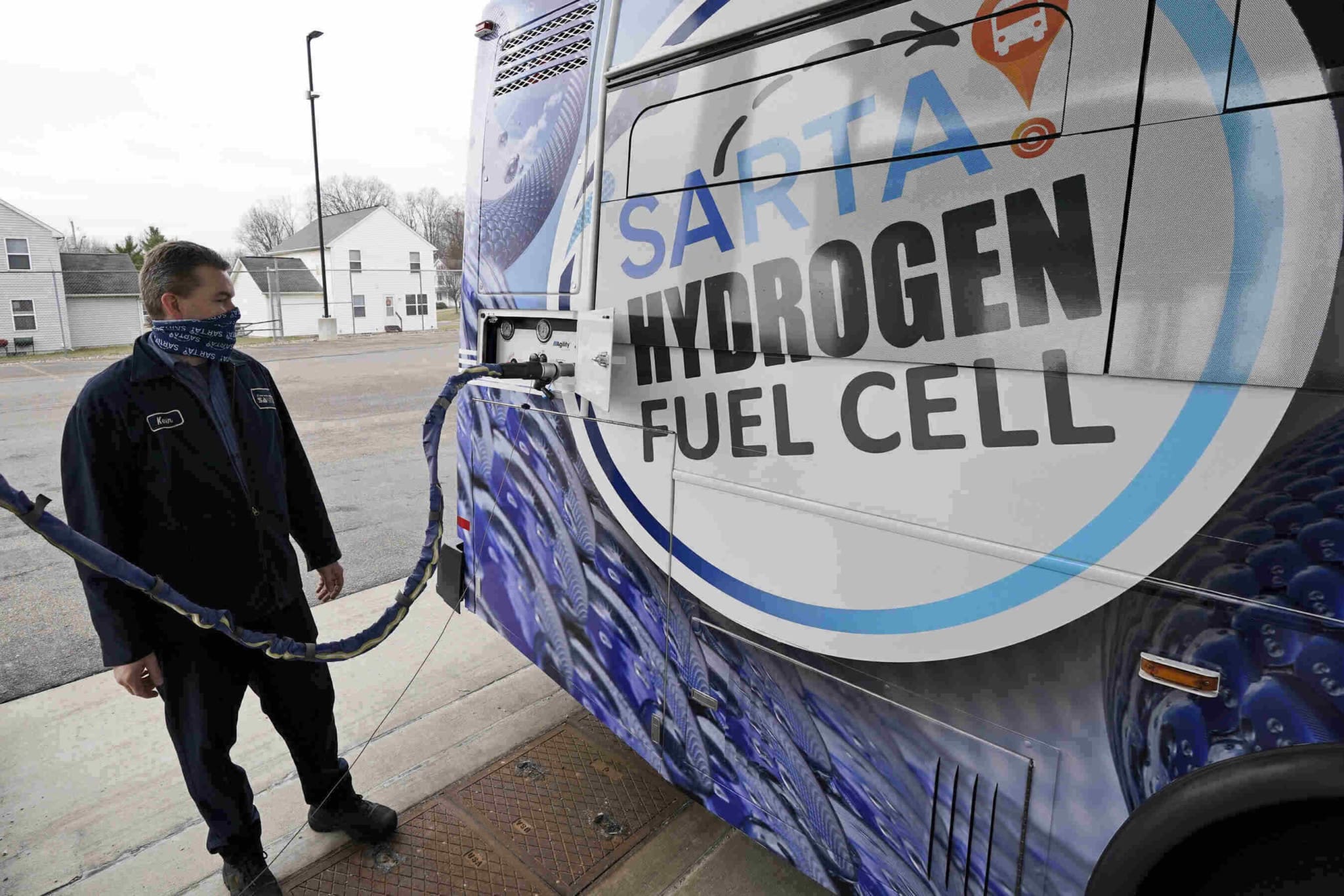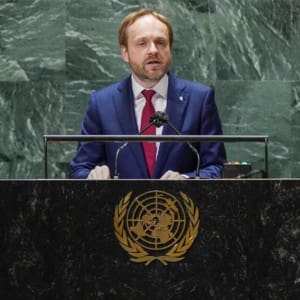The gas transmission system operators of the Czech Republic, Slovakia, Ukraine, and Germany plan to build a hydrogen corridor from Ukraine across Central Europe. The companies did not disclose the likely price of the energy project.
A joint initiative called the Central European Hydrogen Corridor focuses on the development of a hydrogen “highway” in Central Europe. It should be used to transport the hydrogen from future major production areas in Ukraine, which, according to companies, offers excellent conditions for its massive organic production.
The idea is a joint initiative of the Slovak company Eustream, the Czech company Net4Gas, the German company OGE, and the operator of the Ukrainian gas transmission system (Gas TSO of Ukraine).
The corridor is to run through Slovakia and Czechia to areas of expected strong demand in Germany and the EU. According to the companies, it will also enable the transport of hydrogen between hydrogen production facilities and its consumers in the Czech Republic and Slovakia.
Hydrogen network is essential for the European market
The initiators of the project believe that the Central European Hydrogen Corridor can be created by partial reuse of the existing gas infrastructure in combination with targeted investments in new specialized hydrogen pipelines and compressor stations. This will allow the transport of hydrogen over long distances at an affordable price. The mentioned companies have already started to examine the technical feasibility of creating a corridor.
“Although these technical studies are very complex, we are confident that thanks to a strong international partnership, we will have the first results on the feasibility, capacity, and cost of such hydrogen transport next year,” said Andreas Rau, CEO of Net4Gas.
According to OGE CEO Jörg Bergmann, an international hydrogen network is essential for the future European market.
“The Central European Hydrogen Corridor is an important step on this path, as it offers the opportunity to supply significant amounts of hydrogen to German industrial centers since 2030,” he said.
Hydrogen to be supplied by Ukraine
According to the companies, Slovakia and Czechia operate an extensive gas pipeline connecting Ukraine with European demand areas. The companies stated that the Slovak, Czech, and German gas pipeline systems can also be used to transport hydrogen.
“Our robust transmission system would offer a flexible and very cost-effective way to transport green energy further to EU markets. We are determined to prepare our infrastructure for hydrogen transmission and thus significantly contribute to the EU’s goals in the field of decarbonization,” said Rastislav Ňukovič, CEO of Eustream.
At the end of August, the energy industry website oEnergetice.cz stated that Ukraine is increasingly associated with future hydrogen production.
“The European Bank for Reconstruction and Development has also signed a memorandum of cooperation with the local transmission system operator to support the development of the country’s hydrogen economy,“ the portal wrote.
The hydrogen memorandum, for example, was also signed by the German company RWE with the Ukrainian state concern Naftogaz, which, among other things, operates gas storage facilities in Ukraine.
Czech strategy based on four pillars
At the end of July, the Czech government approved the Czech Republic’s hydrogen strategy, which will enable support for the production, use, transport, and storage of hydrogen in energy, industry, and transport.
“Our strategy is based on four pillars: low-carbon hydrogen production, low-carbon hydrogen utilization, hydrogen transport and storage, hydrogen technologies,” said Deputy Prime Minister and Minister of Industry and Transport Karel Havlíček. The priority of the first stage from this year to 2025 is the use of hydrogen in the so-called clean mobility.
Title image: Kevin Baker, a maintenance technician, refuels a hydrogen fuel cell bus, Tuesday, March 16, 2021, in Canton, Ohio. Hydrogen, the most abundant element in the universe, is increasingly viewed as a vital answer to troubling questions about how to slow the catastrophic effects of climate change attributed to the planet’s 1.2 billion cars and trucks, nearly all of which burn gasoline and diesel. (AP Photo/Tony Dejak)





